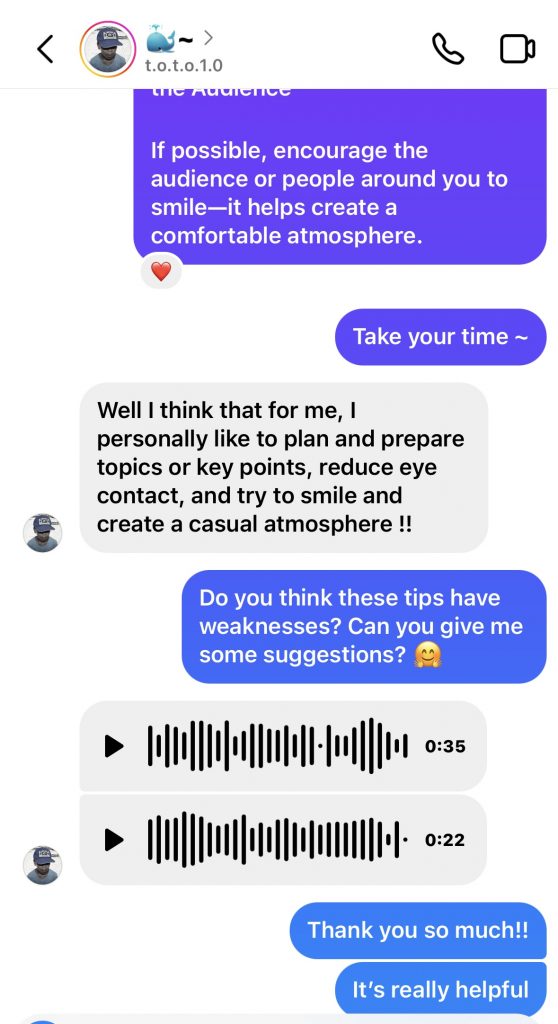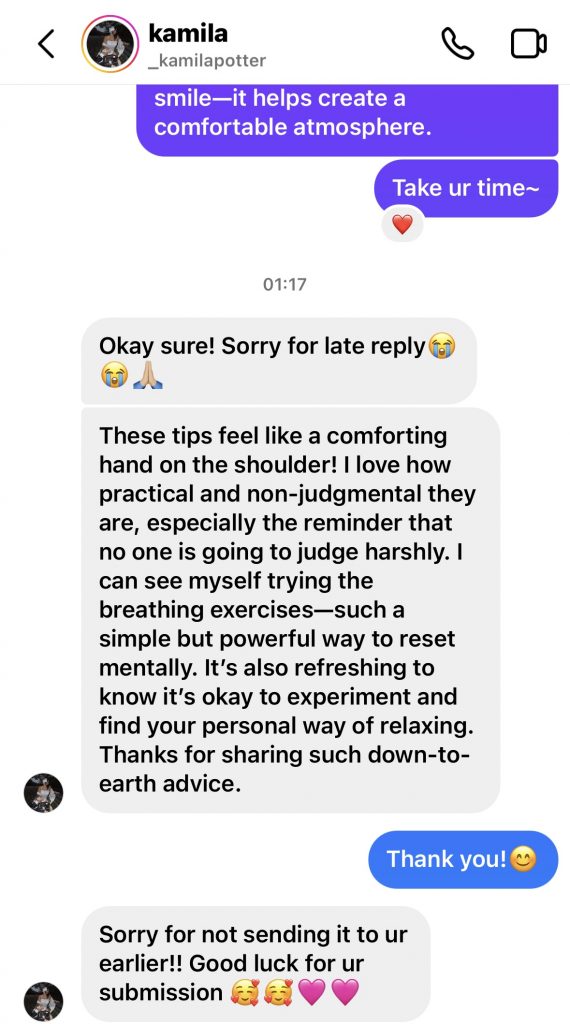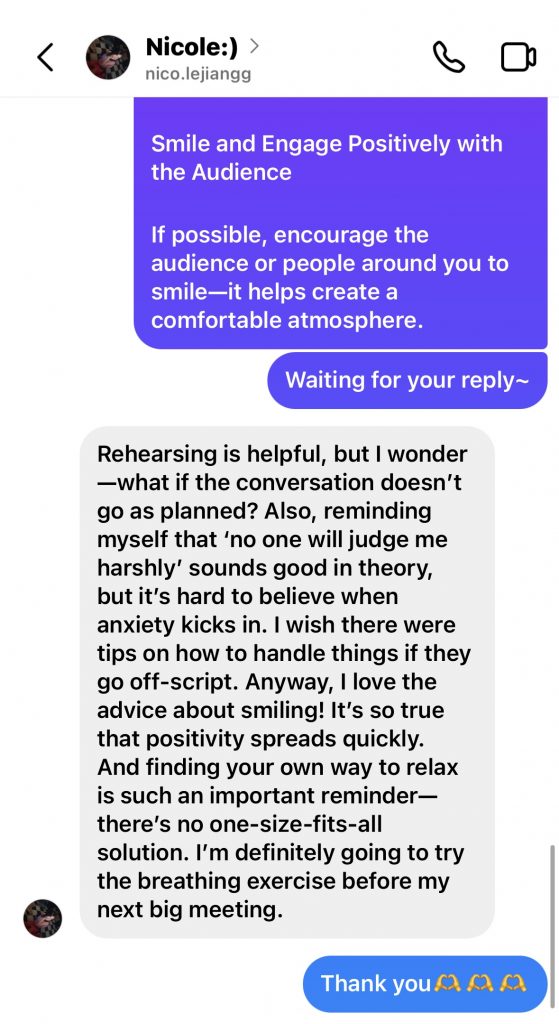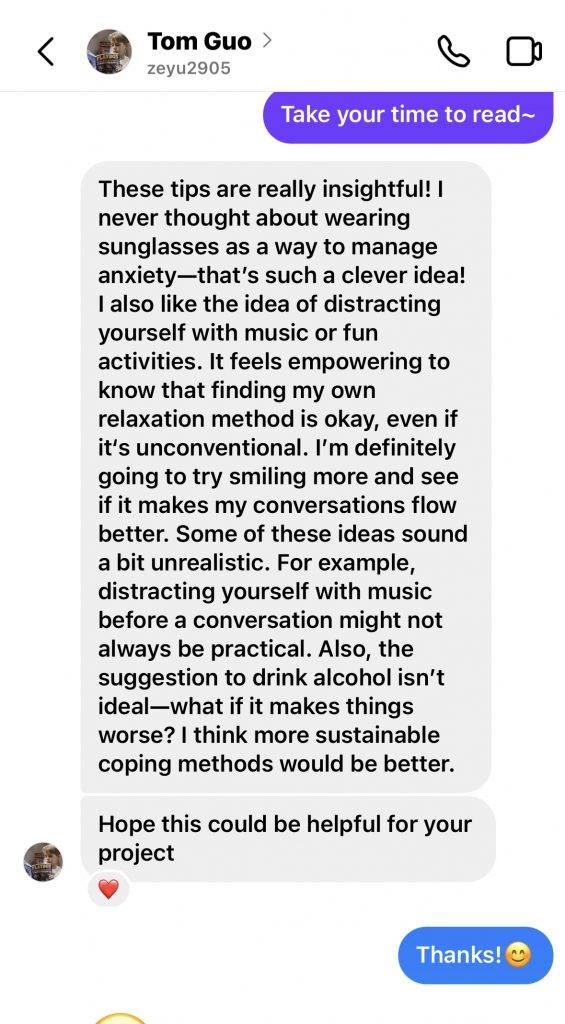INTERVENTION
This week, I received four detailed pieces of feedback from schoolmates. These were provided after they read the tips I shared and tried them out for a week. Their names are Chris, Kami, Nicole and Tommy.




REFLECTIONS
Reflecting on this feedback, I recognize both the strengths and the areas for improvement in my approach. The responses highlight the value of my tips in being practical, non-judgmental, and empowering, particularly the emphasis on finding personalized ways to relax and using positivity, such as smiling, to improve social interactions. This affirmation encourages me to continue framing my advice in ways that feel supportive and approachable. However, I also see gaps in how some strategies may lack universality or practicality. For instance, PUNXH points out that methods like using music or alcohol might not suit all situations or could even backfire, underscoring the need for sustainable and universally applicable coping mechanisms.
Nicole’s feedback draws attention to the limitations of strategies like rehearsing or relying on reassuring beliefs during moments of anxiety. It’s clear that I need to expand my guidance to include actionable steps for managing unexpected scenarios or when anxiety disrupts planned approaches. KAMI’s reflection reinforces the importance of breathing exercises as a simple but effective tool, which aligns with my goal of providing accessible techniques, yet reminds me that these suggestions should always remain adaptable to personal needs.
Chris’s perspective on smiling and practicing resonates deeply with me, as they demonstrate the tangible benefits of my tips. However, the critique about reducing eye contact offers a valuable reminder to be cautious about advice that may not align with real-world social norms. Instead, I should explore alternative ways to ease the discomfort of maintaining eye contact without discouraging this vital aspect of communication.
Overall, while this feedback validates the potential impact of my project, it also challenges me to refine my tips, making them more versatile, context-sensitive, and grounded in real-life applications. By addressing these points, I can create a more comprehensive and effective toolkit for those struggling with social anxiety.
PARTICIPANT CONSENT FORMS